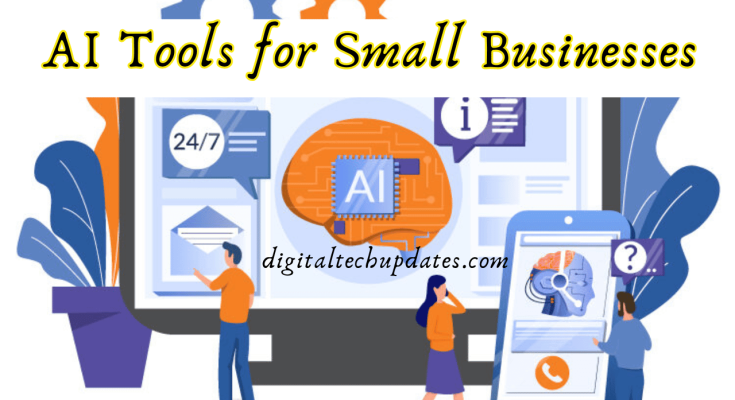In today’s fast-paced digital landscape, small businesses face unique challenges that require innovative solutions. One of the most effective ways to navigate these challenges is by leveraging artificial intelligence (AI). AI tools can streamline operations, enhance decision-making, and improve customer interactions. This article will explore the top AI tools available for small businesses and how they can drive efficiency and growth.
Why Small Businesses Should Use AI
Before diving into specific tools, it’s essential to understand why AI is crucial for small businesses:
- Cost Efficiency: AI tools automate repetitive tasks, freeing up valuable time and resources for more strategic initiatives.
- Enhanced Customer Experience: With AI, businesses can provide personalized experiences, improving customer satisfaction and loyalty.
- Data-Driven Decision Making: AI analyzes vast amounts of data to provide insights that inform better business decisions.
- Scalability: As your business grows, AI tools can easily adapt to increased demands, ensuring sustainability.
Top AI Tools for Small Businesses
Here’s a curated list of AI tools that can transform your small business operations:
1. ChatGPT by OpenAI
Overview
ChatGPT is an advanced language processing AI that can engage customers in natural conversations, answer queries, and provide recommendations.
Benefits
- 24/7 Customer Support: AI chatbots can assist customers round-the-clock, reducing response times.
- Lead Generation: By interacting with visitors on your website, ChatGPT can capture leads and guide them through the sales funnel.
- Cost-Effective: Reduces the need for a large customer support team.
2. HubSpot
Overview
HubSpot is an all-in-one marketing, sales, and service platform that incorporates AI to streamline various business processes.
Benefits
- Personalized Marketing: AI analyzes customer data to tailor marketing campaigns for individual preferences.
- Sales Automation: HubSpot’s AI capabilities help in predicting customer behavior and automating follow-ups, increasing sales efficiency.
- Comprehensive Analytics: Offers detailed insights into campaign performance, allowing for data-driven adjustments.
3. Zapier
Overview
Zapier is an automation tool that connects different applications, enabling them to work together seamlessly without requiring coding knowledge.
Benefits
- Time Savings: Automate routine tasks between apps, such as transferring data from a form to a spreadsheet.
- Integration: Works with over 3,000 applications, making it versatile for any business need.
- Custom Workflows: Create unique workflows tailored to your specific processes, enhancing efficiency.
4. Canva
Overview
Canva is a graphic design platform that uses AI to simplify the design process for non-designers.
Benefits
- User-Friendly Interface: Intuitive tools that allow users to create professional-looking graphics easily.
- Brand Consistency: AI features help maintain brand colors, fonts, and templates, ensuring a cohesive look across all marketing materials.
- Time Efficiency: Create high-quality visuals in minutes, which is vital for marketing campaigns.
5. QuickBooks
Overview
QuickBooks is an accounting software that employs AI to streamline financial management for small businesses.
Benefits
- Automated Bookkeeping: AI assists in tracking expenses, generating invoices, and reconciling accounts, reducing manual effort.
- Financial Insights: Provides real-time analytics on cash flow and expenses, aiding in informed decision-making.
- Tax Compliance: Keeps track of financial records, making tax season less stressful.
Choosing the Right AI Tools for Your Business
When selecting AI tools, consider the following factors:
- Identify Your Needs: Assess your business processes to determine which areas could benefit most from AI automation.
- Ease of Use: Choose tools with user-friendly interfaces to minimize the learning curve for your team.
- Integration Capabilities: Ensure the tools you choose can integrate seamlessly with your existing systems.
- Scalability: Opt for solutions that can grow with your business, accommodating future needs.
Conclusion
Embracing AI tools can significantly enhance the efficiency and effectiveness of small businesses. By automating routine tasks and providing valuable insights, these tools allow you to focus on strategic initiatives that drive growth. Whether you choose ChatGPT for customer interactions or QuickBooks for accounting, integrating AI into your operations will set your small business up for success.




